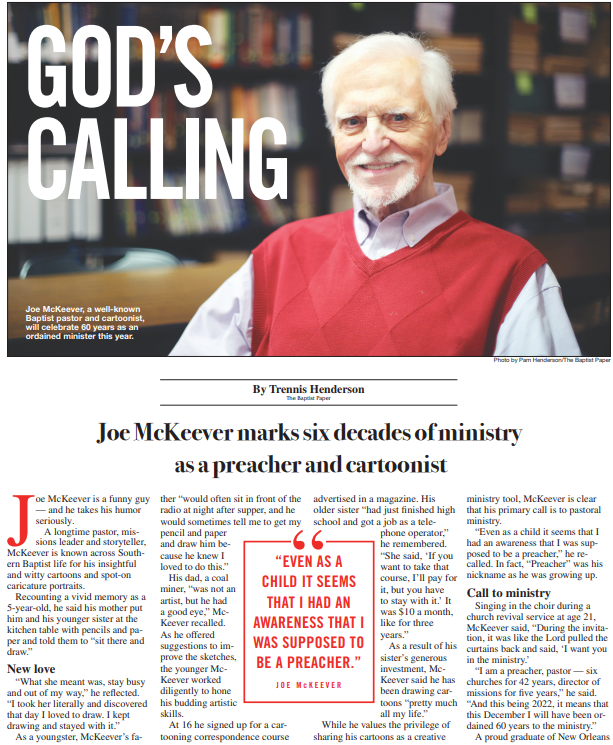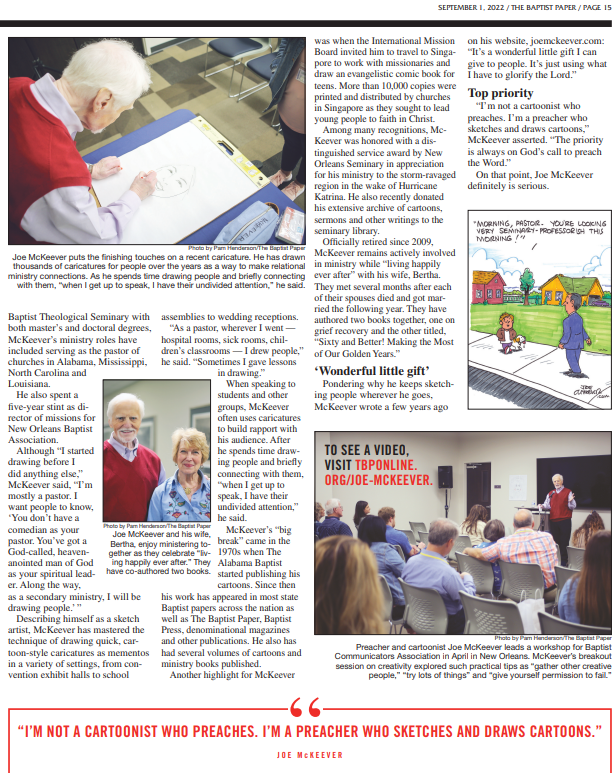Yes, You will cast all their sins into the depths of the sea. Micah 7:19
Gospel song of the 1950s…
You ask me why I’m happy, I’ll tell you the reason why: My sins are gone.
And when I meet the scoffers who ask me where they are, I say, My sins are gone.
They’re underneath the blood of the cross of Calvary, as far removed as darkness is from dawn. In the sea of God’s forgetfulness, that’s good enough for me, praise God, my sins are gone.
(second verse) When Satan comes to tempt me, and cause me to doubt, I say, my sins are gone. You got me into trouble, but Jesus got me out. I’m glad, my sins are gone. (then the chorus)
It’s a good song, take my word for it!
Some lessons God’s children have to keep learning…
She was a faithful member of the church I had gone to right after seminary. I was 27 years old with a lot to learn about ministry. But I knew something about her she thought no one else did.
One day the church secretary had blurted out to me that a year earlier Gloria Mae had had an affair with a man she worked with. “And she thinks no one knows it!” Well, it’s impossible to unknow something once you hear it. And I was sorry to know this. But God used that…
One day sometime later, while making my morning hospital rounds, I noticed that Gloria Mae had been admitted as a patient. I went in to visit her. “My ulcer is acting up,” she told me. As we visited, she said, “Pastor, one of these days there is something I need to tell you. Something that bothers me.”
I said, “I’m available any time,” and continued to stand there by her bed talking and listening. And because I was patient, she began pouring out the sad tale of her sin. She wept and my heart broke for her. Finally, I said, “Gloria, has God forgiven you?”
“Oh, yes,” she said, “He has, but I can’t forgive myself.”
I said, “So, you have a higher standard than God. Is that right?”
She was almost offended. “Brother Joe! Whatever does that mean?”
I said, “Well, listen to you. Sure, God forgave me. It’s easy for Him. But I’m harder on myself than He is.” I paused to let that sink in and said, “Gloria, if God forgave you, why don’t you forgive yourself?”
We prayed together and left that sordid business at the cross, where it belonged. One year later, I received a note from her saying, “It was a year ago today that you visited me in the hospital. And you said exactly what I needed to hear. I am well today. Thank you.”
Her sins were gone. And how good is that???
Question: Where were her sins? What had God done with them? Continue reading


